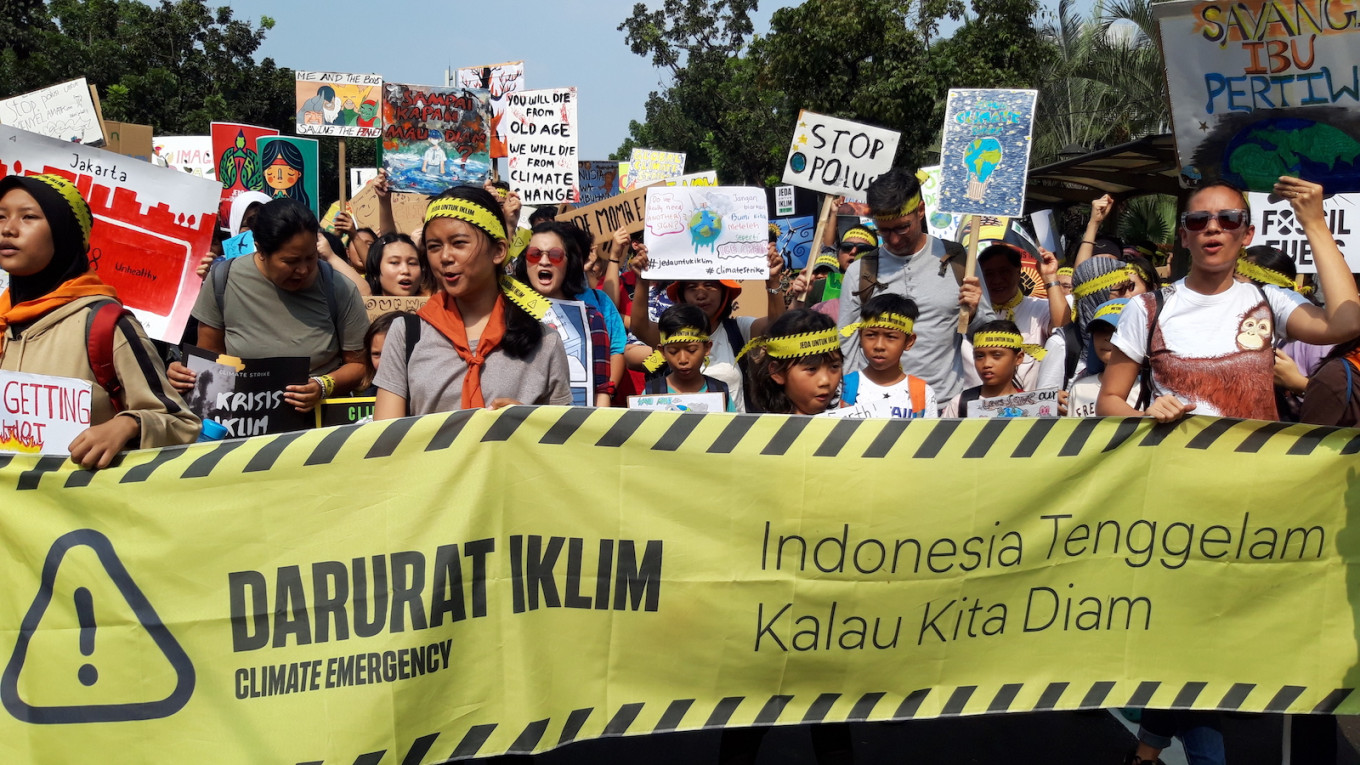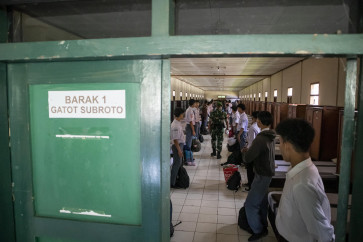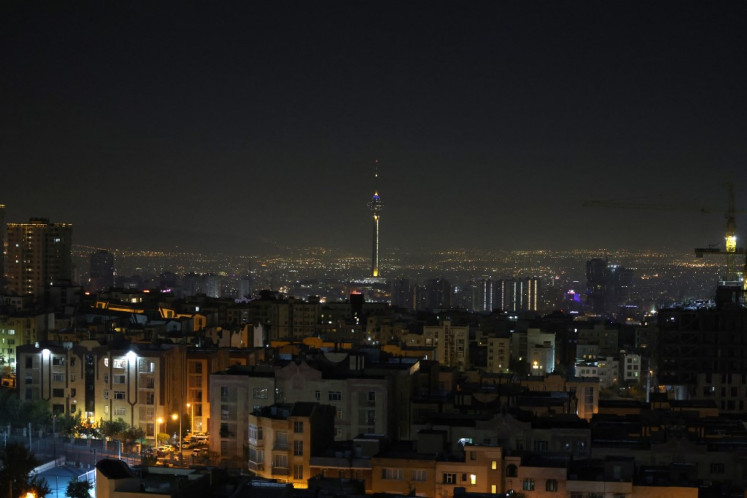Indonesia must ‘walk the talk’ on climate
“The government often sugarcoats its promises and commitments at international forums. They look shiny from the outside but not from the inside,” one youth activist said.
Change text size
Gift Premium Articles
to Anyone

I
ndonesia should use its year-long Group of 20 presidency to lead member countries in the delivery of their climate commitments, youth activists have said.
On Dec. 1, Indonesia assumed the G20 presidency, taking the mantle from the previous president, Italy. A handover ceremony was held in Rome in late October, a few days before the 26th United Nations Climate Change Conference (COP26) in Glasgow, Scotland, the United Kingdom.
President Joko “Jokowi” Widodo, in a speech on Dec. 1, said the country sought to strengthen global solidary in mitigating climate change and nurturing sustainable development. He said he would encourage developed countries to increase their climate aid contributions to developing countries.
Read also: Collaboration 'key' as Jokowi kicks off G20 presidency
Student activist Naifah Uziah of the University of Indonesia (UI) community Fossil Free UI said the country should “walk the talk” on its promise to focus on climate change during its G20 presidency, adding that Indonesia’s domestic policies must also be aligned with its international climate position.
“Indonesia needs to show its seriousness in its climate actions. We don’t need ‘clean’ or ‘unabated’ coal; we need to keep it under the ground and start using clean, renewable energy,” said Naifa, referring to the country’s longstanding reliance on coal for power generation.
She said previous G20 summits had produced a lot of commitments but that relatively few had been realized.
Activist Novita Indri of the Southeast Sulawesi-based Climate Ranger organization echoed Naifah’s position, saying the country needed to match its own domestic policies with its G20 advocacy.
“The government often sugarcoats its promises and commitments at international forums. They look shiny from the outside but not from the inside,” said Novita.
She noted that the government had, for example, pressed on with its food estate program, which environmentalists had warned could lead to increased deforestation in the country, despite its plan to have the forestry sector become a net carbon sink by 2030.
Rafaela Xaviera of Jeda Untuk Iklim, an environmental organization that is part of the global climate strike movement, called on Indonesia to set an example for other G20 members during its presidency, including by setting a more ambitious net-zero target.
Ahead of COP26, Indonesia submitted its Long-Term Strategy for Low Carbon and Climate Resilience (LTS-LCCR), in which it outlined its strategy to achieve net-zero carbon emissions by 2060.
The country also submitted an updated Nationally Determined Contribution (NDC) ahead of COP26, aiming to reduce carbon emissions by 29 percent independently by 2030 or by 41 percent with sufficient international assistance.
Read also: Jokowi's COP26 speech falls flat among environmentalists
However, climate activists, including Rafaela, have said that Indonesia’s current climate targets are far behind what is necessary, as the Intergovernmental Panel on Climate Change (IPCC) recommends that all countries reach net-zero emissions by 2050 to keep the global rise in temperature within 1.5 degrees Celsius – a key goal of the 2015 Paris Agreement.









